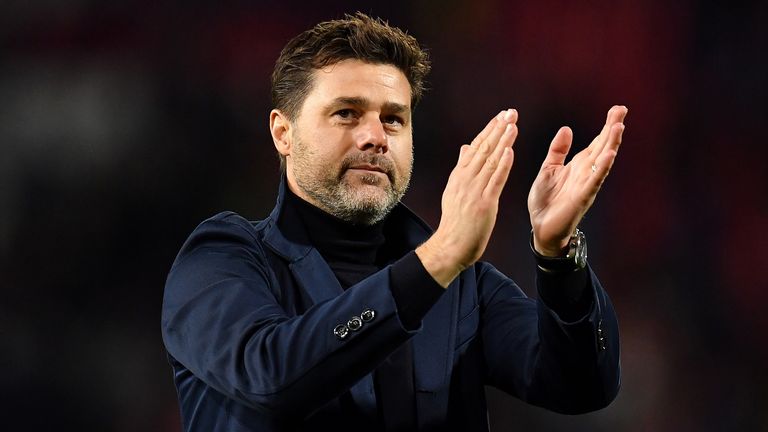Mauricio Pochettino began his tenure as the head coach of the United States national soccer team with a successful debut, leading the team to a 2-0 victory over Panama. Pochettino, a well-known figure in football management with a history at clubs like Tottenham, Paris Saint-Germain, and Chelsea, stepped in last month to revive a struggling U.S. team that had managed only one win in its previous seven matches. The Argentine manager is set to guide the U.S. squad into the 2026 World Cup, which they will co-host with Canada and Mexico. Despite having only five days for preparations with his new group of players, the early signs of Pochettino’s tactical approach were evident on the pitch.
In the match against Panama, Pochettino implemented a flexible 4-2-3-1 formation, instantly showcasing his intent to revive the team’s style of play. Aidan Morris played a crucial role as the central anchor in midfield, a position critical for transitioning from defense to attack. The young Middlesbrough midfielder, who was absent from the squad in the Copa America earlier in the summer, exceeded expectations with a dynamic performance that underlined Pochettino’s trust in him. The USA initially displayed confidence and vigor in their ball movement; however, they struggled to penetrate Panama’s defense and create clear scoring opportunities, a common issue faced under previous coach Gregg Berhalter.
Concerned about conserving their energy, Panama adopted a defensive strategy, allowing the U.S. side to maintain possession while occasionally striking back with their own rapid counters. USA goalkeeper Matt Turner had a relatively quiet outing, dealing confidently with a long-range shot from Edgar Barcenas and a closer attempt that struck the side-netting from Eduardo Guerrero. The first significant chance for the Americans came shortly before halftime when Christian Pulisic cleverly set up Brenden Aaronson, but the latter’s shot was thwarted by the Panamanian keeper, Orlando Mosquera. As the half drew to a close, Josh Sargent had a golden opportunity to score, but his effort flew over the bar, leaving the game still scoreless.
The second half, however, witnessed an immediate impact from the U.S. attack. Just four minutes after the restart, Antonee Robinson’s persistence down the left flank set up a sequence of one-touch passes between Pulisic and Aaronson. The quick interchange allowed Aaronson to reach the byline, from where he delivered a precise cross to Yunus Musah, who side-footed the ball into the net to register his first international goal. This moment was significant not only for Musah personally, as it came in his 42nd appearance, but also for Pochettino’s confidence in his tactical philosophy.
Despite their lead, the U.S. team faced pressure from Panama as they attempted to respond offensively. Turner distinguished himself with a crucial double save, thwarting a strike from Barcenas and the subsequent follow-up from Jose Rodriguez. The rhythm of the game was intermittently disrupted by the usual substitutions that come with friendly matches, leading to a less fluid performance in the latter part of the game. Nevertheless, as the match progressed to injury time, Haji Wright secured the victory with a run down the left flank, delivering a low cross that was deftly finished by substitute Ricardo Pepi. This final goal sealed a convincing 2-0 win for the U.S. and marked a positive first step under Pochettino’s leadership.
After the match, Pochettino expressed his satisfaction with the team’s performance, emphasizing the need to build on this foundation as they look ahead to the World Cup in 2026. He acknowledged that while the victory was a promising start, it was merely the first of many steps required to improve the team’s consistency and overall quality. The Argentine manager indicated that his emphasis on developing a more professional and competitive team culture would be integral to the long-term objectives for the U.S. squad. Pochettino’s initial foray as the national team coach demonstrates his commitment to fostering growth and effectiveness within the team, setting a hopeful tone for the future as they aim to succeed on the world stage.














